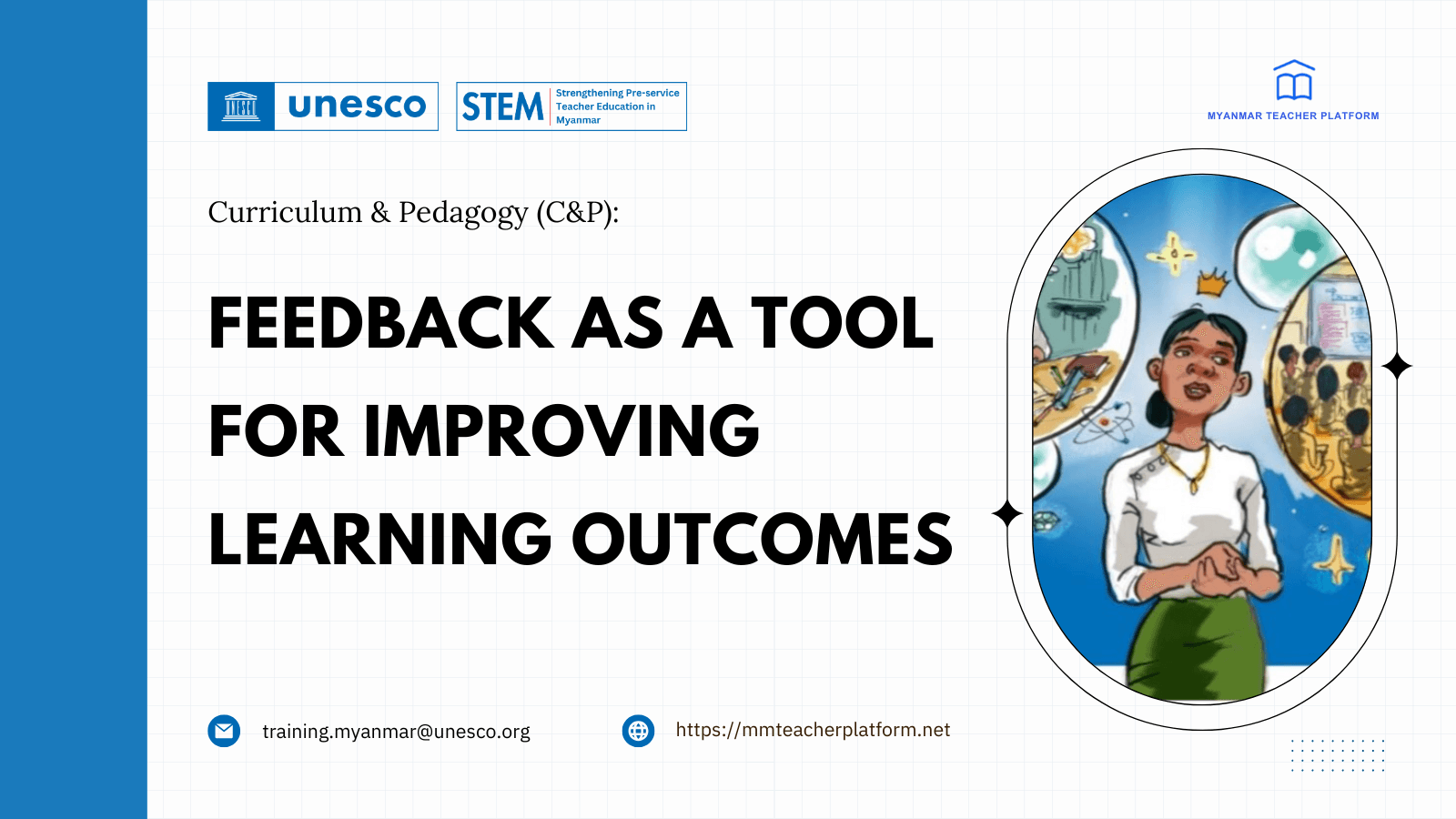Feedback as A Tool for Improving Learning Outcomes
5
(2 Reviews)
Certified
5 hour(s)
59 Enrollment(s)
1415 View(s)

Share On :
Course Description
This course aims to empower teachers with the knowledge and skills necessary to utilize feedback as a powerful tool for enhancing student learning and performance. This course emphasizes the importance of feedback in the educational process, addressing both the delivery and reception aspects to maximize its impact on student learning outcomes. The course covers the following modules:
Module 1. Understanding Feedback
1.1. Fundamentals of Feedback
1.2. Types of Feedback
Module 2. Giving Feedback
2.1. Tools for providing feedback
2.2. Challenges and solutions
Module 3. Importance of Receiving and Using Feedback
3.1. Skills and Practices in Receiving and Using Feedback
Key terms
Effective feedback, formative, summative, and peer feedback, checklist, rubric, time constraints, student resistance, and maintaining consistency in feedback, growth mindset, reflection and adaptation
Course Objectives
This course equips teachers with skills to create a supportive and constructive learning environment through a comprehensive exploration of fundamentals of feedback, types of feedback, tools for providing feedback, and strategies for effectively receiving and using feedback.
Learning Outcomes
By the end of this course, you will be able to
- Apply the key elements that constitute effective feedback in the learning process;
- Appreciate the role of feedback in enhancing student learning and performance;
- Identify and differentiate between various types of feedback, including formative, summative, and peer feedback;
- Develop the ability to apply appropriate types of feedback to support student learning effectively;
- Gain a comprehensive understanding of the various tools available for providing feedback and their effective use;
- Learn to navigate and address the challenges that can arise in the feedback process;
- Equip oneself with practical strategies and solutions to enhance the quality and impact of the feedback provided to students;
- Develop skills to effectively receive and understand feedback;
- learn to manage emotional responses and seek clarification for better comprehension;
- Create and implement plans for continuous improvement based on feedback; and
- Foster a growth mindset through ongoing reflection and adaptation.
Please login to take this course
Lectures
Introduction
Module 1. Understanding Feedback
Module 1 Expected Learning Outcomes and Competencies Gained
1.1. Feedback Fundamentals
Stop and Reflect Activity for Module 1.1
Feedback Fundamentals
Video Lesson for Module 1.1
In Practice Activity for Module 1.1
1.2. Types of Feedback
Stop and Reflect Activity 1 for Module 1.2
Formative and Summative Feedback
Quiz for Module 1.2
In Practice Activity 1 for Module 1.2
Peer Feedback
Stop and Reflect Activity 2 for Module 1.2
In Practice Activity 2 for Module 1.2
Module (1) Summary
Module 2. Giving Feedback
Module 2 Expected Learning Outcomes and Competencies Gained
2.1. Tools for providing feedback
Stop and Reflect Activity 1 for Module 2.1
Tools for providing feedback
Video Lesson for Module 2.1
Quiz for Module 2.1
Stop and Reflect Activity 2 for Module 2.1
In Practice Activity for Module 2.1
2.2. Challenges and solutions
Stop and Reflect Activity for Module 2.2
Common challenges and suggested solutions
In Practice Activity for Module 2.2
Quiz for Module 2.2
Module (2) Summary
Module 3. The Importance of Receiving and Using Feedback
Module 3 Expected Learning Outcomes and Competencies Gained
3.1. Skills and practices in receiving and using feedback
Stop and Reflect Activity for Module 3.1
In Practice Activity for Module 3.1
Quiz for Module 3.1
In Practice Activity 2 for Module 3.1
Module (3) Summary
Summary
Final Reflection
Course Summary
Further Reading/Additional Resources
Related Courses
